Pneumatic Retinopexy Surgery in Turkey
Healthy Türkiye helps you find the best pneumatic retinopexy surgery in Turkey at affordable prices and adopts a 360-degree service approach in all areas of health through affiliated hospitals.
- Medical Treatment
- Eye Surgery in Turkey
- Corneal Transplant in Turkey
- Lasik Eye Surgery in Turkey
- Retinal Detachment Treatment in Turkey
- Cataract Surgery in Turkey
- Astigmatism Treatment in Turkey
- Oculofacial Plastic Surgery in Turkey
- Ptosis Treatment in Turkey
- SBK Surgery in Turkey
- Dermatofibromas Removal in Turkey
- Glaucoma Surgery in Turkey
- Ocular Prosthesis in Turkey
- Retinoblastoma Treatment in Turkey
- Uveitis Treatment in Turkey
- Vitrectomy in Turkey
- Eye Muscle Surgery in Turkey
- PRK Surgery in Turkey
- Phacoemulsification Surgery in Turkey
- Pneumatic Retinopexy Surgery in Turkey
- Presbyopia Treatment in Turkey
- Refractive Surgery in Turkey
- Scleral Buckling Surgery in Turkey
- Strabismus Surgery in Turkey
- Extracapsular Cataract Extraction Surgery in Turkey
- Squint Surgery in Turkey
- Excimer Laser Surgery in Turkey
- LASEK Surgery in Turkey
- Homepage
- Medical Treatment
- Pneumatic Retinopexy Surgery in Turkey
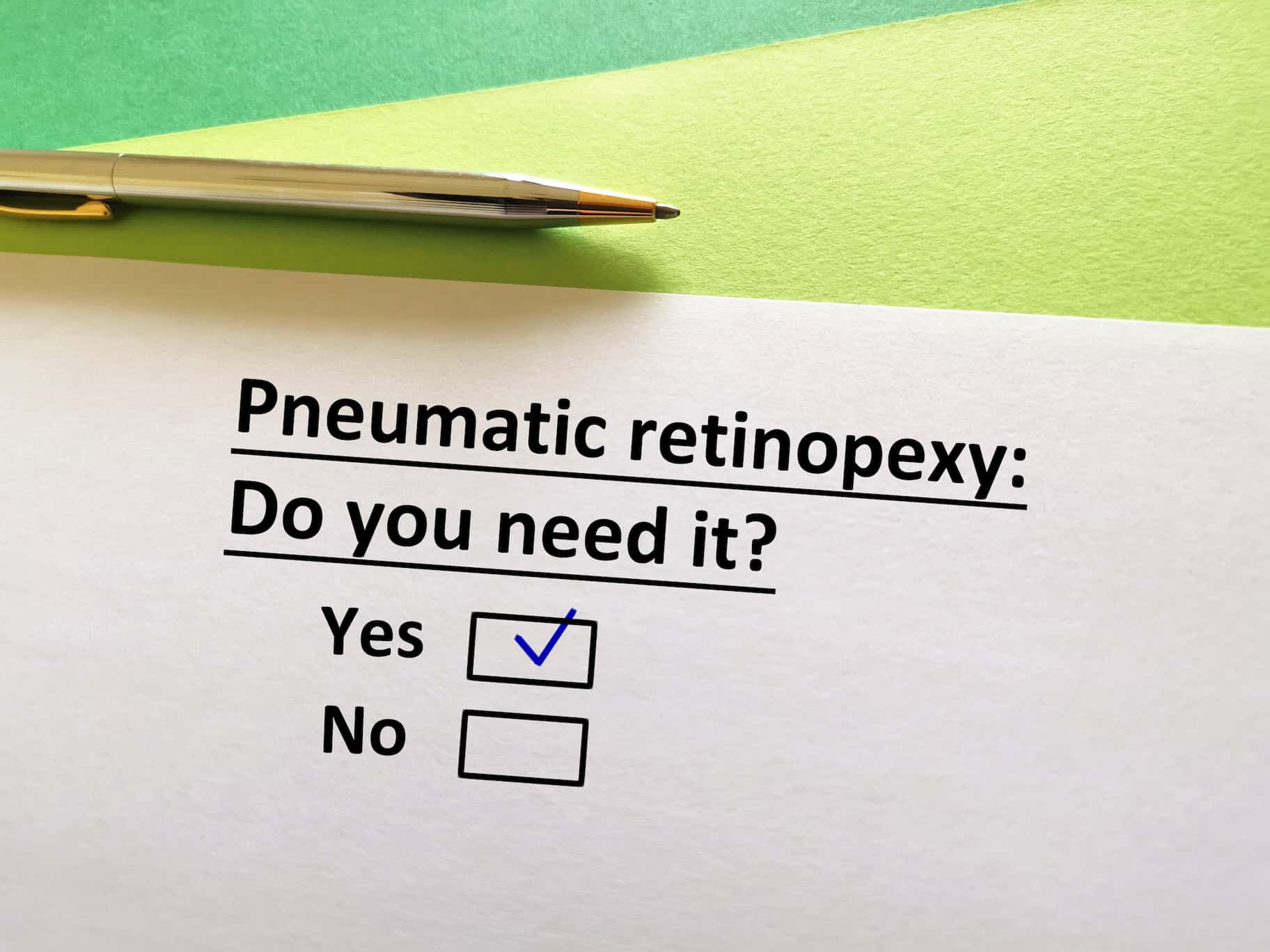
About Pneumatic Retinopexy Surgery in Turkey
Pneumatic retinopexy surgery in Turkey is a procedure to repair a detached retina and restore vision. Unlike other procedures to treat a detached retina, it generally takes place in an office setting.
At the back of your eye is a layer of cells called the retina. These cells communicate visual information to your brain using light. When a portion of your retina separates from the eye’s inner wall, this is referred to as a retinal detachment. Your retina stops working normally when that occurs. A retinal detachment may result in permanent visual loss if it is not properly treated.
If you have pneumatic retinopexy, your eye specialist will inject an expanding gas bubble into your eye. The expert doctor will position you so that the bubble floats over the detached area and pushes it against the back of your eye. Your eye specialist then uses a freezing device to seal the retina against the wall of the eye.
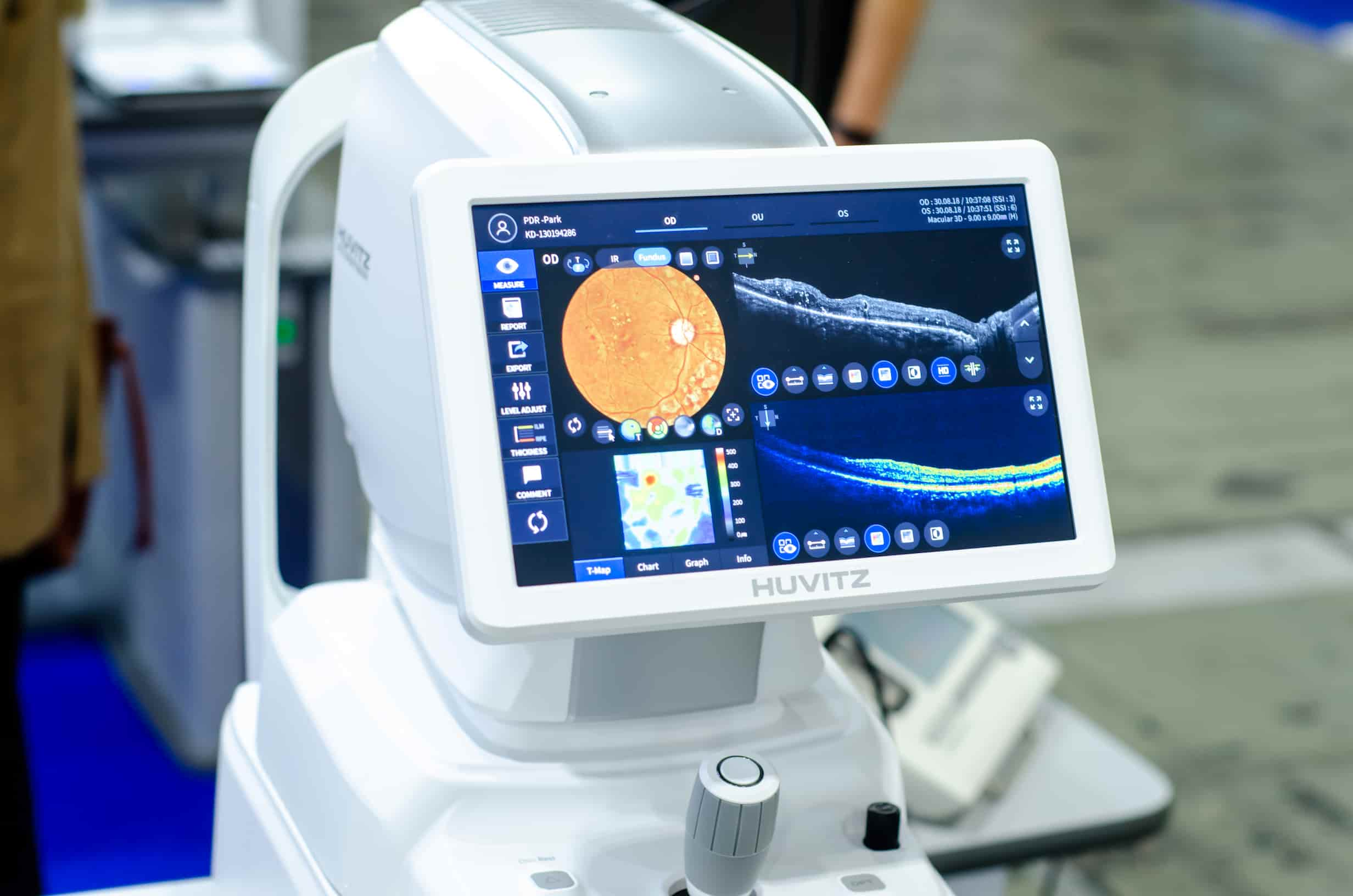
Pneumatic Retinopexy Surgery Procedure in Turkey
Pneumatic retinopexy surgery in Turkey is an effective treatment option available for repairing retinal detachments. During this surgery, a small gas bubble is gently injected into the vitreal space of the eye. This gas bubble helps stay the retina in place, which allows the tear or detachment to heal in the proper position by pushing the retina flat against the back wall of the eye forcing any fluid that might have leaked behind the retina to be pumped out.
Throughout this surgery, the patient’s head will be positioned facing downward, this is so that the gas bubble can float upwards to the back of the eye, which is the area in which retinal detachments occur. Here, the gas bubble will gently press against the retina so that it remains flat and can start healing in the correct position.
Once the retina has been laid flat, cryotherapy or laser therapy is applied to the detachment so that the retina can remain fixed in the correct position at the back of the eye. Throughout the healing process, the gas bubble will stay inside the eye, but it will eventually be absorbed naturally.
Good Candidate for Pneumatic Retinopexy Surgery in Turkey
Patient selection is critical for pneumatic retinopexy surgery in Turkey, which best explains the wide range of reported success rates. The ideal patient is cooperative and has a one-quadrant superior detachment with a small retinal tear located between 10 o’clock and 2 o’clock. In some conditions, one may try to “push the envelope” and treat patients with less-than-ideal detachment configurations in an attempt to avoid a surgical procedure.
Surprisingly, specialists might find success, while in others cases, surgery will ultimately be necessary. Pneumatic retinopexy surgery in Turkey is an excellent option for the treatment of selected retinal detachments, and even in failed cases, by steamrolling the macula, it can generally restore vision more rapidly and ultimately facilitate subsequent surgery.
Prepare for Pneumatic Retinopexy Surgery in Turkey
The most important thing to do is discuss with your eye specialist the positioning of your head that you will need to hold for the pneumatic retinopexy to be successful, and for how long you will have to hold that position. Generally, the head needs to be tilted to the side for up to one week, day and night. For some people, this is not an issue, and they are able to correctly position for the appropriate amount of time until the retina reattaches. For others, generally with neck or back issues, or other medical issues, they are unable to position properly for such a long period of time. This should be communicated to your eye specialist in Turkey, as you might not be a good candidate for pneumatic retinopexy.
Furthermore, you should discuss with your eye specialist the success rate of pneumatic retinopexy with your specific retinal detachment and your specific ability to position your head. Every condition is different, and you should know what to expect prior to the procedure. If the pneumatic retinopexy surgery is successful, then you can generally avoid going to the operating room for surgery, but often surgery is needed to repair the retina in addition to a pneumatic retinopexy. These discussions are important to have prior to any treatment procedure.
Your eye will be dilated and a retina test performed prior to the pneumatic retinopexy surgery in Turkey, but otherwise, there is nothing that needs to be done to prepare.
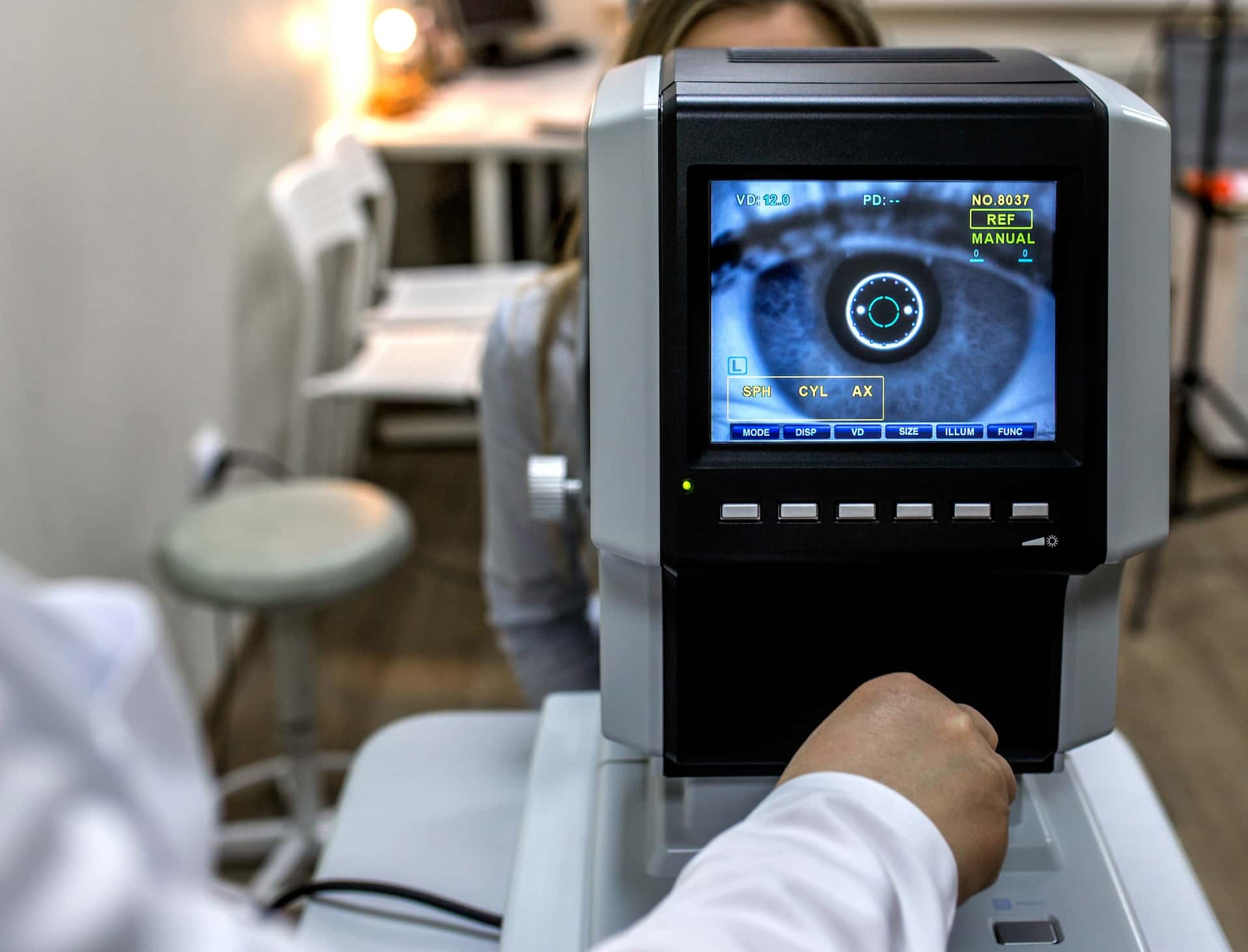
We Care About Your Health
Healthy Türkiye provides the best for your health and comfort. You will feel privileged with us.
7/24 Quality Personal Assistance Throughout Your Journey
Customizable for You All-Inclusive Packages
Get the Right Advice for your Health
How Is Pneumatic Retinopexy Surgery Performed in Turkey?
A pneumatic retinopexy surgery in Turkey is often a short procedure that takes about 30 minutes. Here is what you can expect during this procedure:
A full eye test will take place to identify the area of the detachment and associated retinal tears to ensure you are a viable candidate. The eye will be numbed with numbing eye drops and/or injection of local anesthesia to ensure there is no discomfort during the pneumatic retinopexy surgery in Turkey.
You’ll be placed into the slit lamp and an anterior chamber paracentesis (AC tap) will take place. During this step, the eye specialist will insert a small needle into the front of the eye to remove the fluid. By removing this fluid, space is made in the eye for the gas bubble to be added.
The eye specialist will then inject a gas bubble into the vitreous, the center of the eye, and position you so that the bubble presses on the area of detachment. This positioning achieves the bubble to properly float up to the necessary location. Once the bubble is in the proper location, your eye will be analyzed, and your intraocular pressure will be checked. If the pressure in the eye is elevated, another AC tap might be necessary to relieve pressure in the eye.
At-home positioning and restrictions will be explained to you. You will be required to return to the clinic or hospital a few days after your gas bubble injection, at which time a laser treatment will take place. This laser is applied to permanently seal off the area of the detachment to ensure no future detachments occur in this area.
After Pneumatic Retinopexy Surgery in Turkey
Ask your expert eye doctor at Healthy Türkiye about what you should expect after your procedure. Plan to have someone go home with you after the pneumatic retinopexy surgery in Turkey. You can benefit from the personal assistant service at Healthy Türkiye.
Be sure to follow your expert eye doctor’s instructions about eye care. You might need to take eye drops with antibiotics to help prevent infection. Your eye might be a little sore after the pneumatic retinopexy surgery, but you should be able to take over-the-counter pain medications. You might need to wear an eye patch for a day or so.
Your eye specialist will give you specific instructions about how to position your head after the pneumatic retinopexy surgery. It is important to follow all your expert eye doctor’s instructions to help reduce your chance of complications. You may need to keep a certain position for 8 hours or more after your pneumatic retinopexy surgery. To avoid complications, you’ll also need to avoid air travel for a period after the procedure. Ask your specialist when it will be safe for you to fly again.
You’ll need close follow-up care with your specialist in Turkey to see whether the procedure was effective. You might have a scheduled appointment the day after the pneumatic retinopexy surgery. Be sure to tell your eye specialist right away if you have decreasing vision or increasing pain or swelling around your eye.
Benefits of Pneumatic Retinopexy Surgery in Turkey
When pneumatic retinopexy surgery is successful, the benefits are obvious: no operating room, no eye drops, and back to work quickly. Utilizing the steamroller method, the macula is reattached soon after the injection of the gas bubble on the same day that the patient presents to the office, thus allowing for a faster recovery of vision.
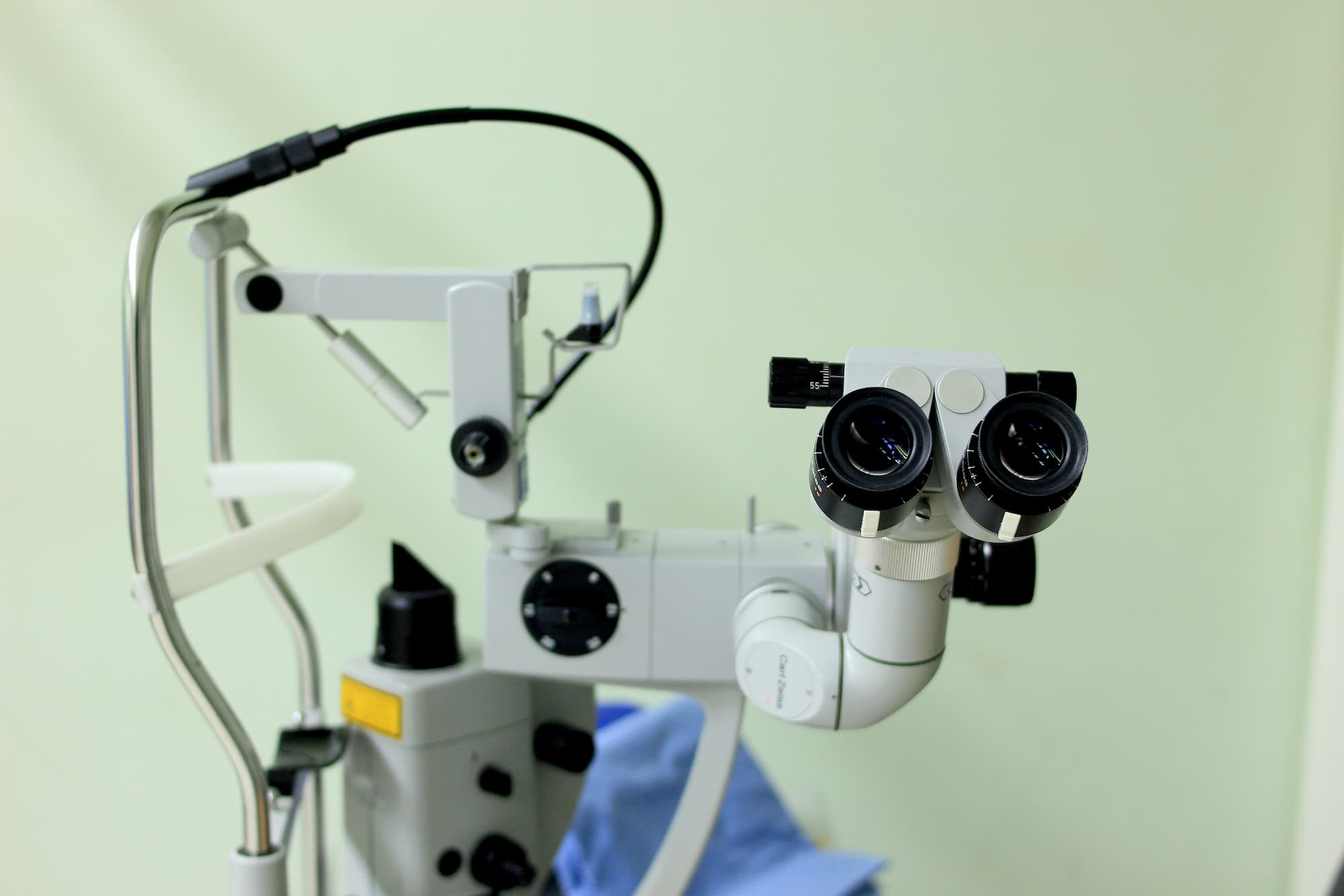
2026 Cost of Pneumatic Retinopexy Surgery in Turkey
All types of medical attention, like pneumatic retinopexy surgery, are very affordable in Turkey. Many factors are also included in determining the cost of pneumatic retinopexy surgery in Turkey. Your process with Healthy Türkiye will last from the time you decide to have a pneumatic retinopexy surgery in Turkey until the time you are fully recovered, even if you are back home. The exact pneumatic retinopexy surgery procedure in Turkey depends on the type of operation involved.
The cost of pneumatic retinopexy surgery in Turkey does not demonstrate many variations in 2026. Compared to costs in developed countries like the United States or the UK, pneumatic retinopexy surgery costs in Turkey are relatively low. So, it’s no wonder patients from across the world visit Turkey for pneumatic retinopexy surgery procedures. However, price is not the only factor affecting choices. We suggest looking for hospitals that are safe and have pneumatic retinopexy surgery reviews on Google. When people decide to seek medical help for pneumatic retinopexy surgery, they will not only have had low-cost procedures in Turkey, but also the safest and best treatment.
At clinics or hospitals contracted with Healthy Türkiye, patients will receive the best pneumatic retinopexy surgery from specialist doctors in Turkey at affordable rates. Healthy Türkiye teams to provide medical attention, pneumatic retinopexy surgery procedures, and high-quality treatment to patients at a minimum cost. When you contact Healthy Türkiye assistants, you can get free information about the cost of pneumatic retinopexy surgery in Turkey and what this cost covers.
Why Is Pneumatic Retinopexy Surgery Cheaper in Turkey?
One of the main considerations before traveling abroad for pneumatic retinopexy surgery is the cost-effectiveness of the whole process. Many patients think that when they add flight tickets and hotel expenses to their pneumatic retinopexy surgery costs, it will become very expensive to travel, which is not true. Contrary to popular belief, round-trip flight tickets to Turkey for pneumatic retinopexy surgery can be booked very affordably.
In this case, assuming you are staying in Turkey for your pneumatic retinopexy surgery, your total travel expense of flight tickets and accommodation will only cost less than any other developed country, which is nothing compared to the amount that you are saving. The question “Why is pneumatic retinopexy surgery cheaper in Turkey?” is so common among patients or people simply curious about getting their medical treatment in Turkey. When it comes to pneumatic retinopexy surgery prices in Turkey, there are 3 factors allowing for cheaper prices:
The currency exchange is favorable for whoever looking for pneumatic retinopexy surgery has a euro, dollar, or pound;
The lower cost of living and cheaper overall medical expenses such as pneumatic retinopexy surgery;
For pneumatic retinopexy surgery, incentives are given by the Turkish Government to medical clinics working with international clients;
All these factors allow for cheaper pneumatic retinopexy surgery prices, but let’s be clear, these prices are cheaper for people with strong currencies (as we said, euro, dollar, Canadian dollar, pound, etc).
Every year, thousands of patients from all over the world come to Turkey to get pneumatic retinopexy surgery. The success of the healthcare system has increased in recent years, especially for pneumatic retinopexy surgery. It’s easy to find well-educated and English-speaking medical professionals in Turkey for all kinds of medical treatment, such as pneumatic retinopexy surgery.
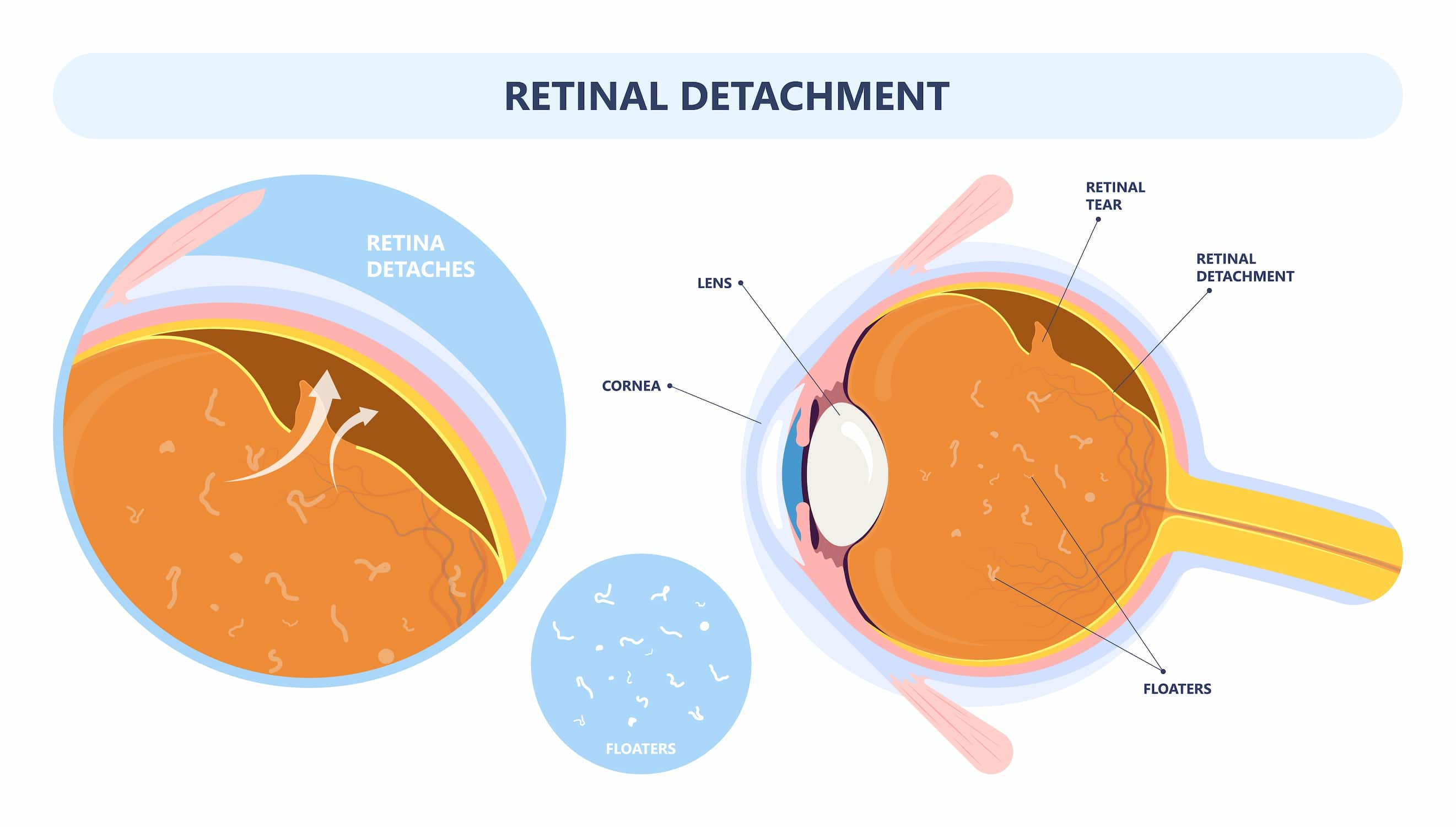
Why Choose Turkey for Pneumatic Retinopexy Surgery?
Turkey is a common choice among international patients seeking advanced pneumatic retinopexy surgery. Turkey’s health procedures are safe and effective operations with a high success rate like pneumatic retinopexy surgery. The increasing demand for high-quality pneumatic retinopexy surgery at affordable prices has made Turkey a popular medical travel destination. In Turkey, pneumatic retinopexy surgery is performed by highly experienced and trained doctors with the most advanced technology in the world. Pneumatic retinopexy surgery is done in Istanbul, Ankara, Antalya, and other major cities. The reasons for choosing pneumatic retinopexy surgery in Turkey are as follows:
High-quality hospitals: Joint Commission International (JCI) accredited hospitals have dedicated pneumatic retinopexy surgery units that are specially designed for patients. International and national strict protocols provide effective and successful pneumatic retinopexy surgery for patients in Turkey.
Qualified experts: The expert teams include nurses and specialist doctors, together to carry out pneumatic retinopexy surgery according to the patient’s needs. All the included doctors are highly experienced in performing pneumatic retinopexy surgery.
Affordable price: The cost of pneumatic retinopexy surgery in Turkey is affordable compared to Europe, the USA, the UK, Singapore, Australia, etc.
The high success rate: Highly experienced specialists, the best available technology, and stringently followed safety guidelines for post-operative care of the patient resulting in a high success rate for pneumatic retinopexy surgery in Turkey.
Is Pneumatic Retinopexy Surgery Safe in Turkey?
Did you know Turkey is one of the most visited destinations for pneumatic retinopexy surgery in the world? It is ranked as one of the most popular tourist destinations for pneumatic retinopexy surgery. Over the years, it has also come to be a very popular medical tourism destination, with many tourists coming in for pneumatic retinopexy surgery. There are so many reasons why Turkey stands out as a leading destination for pneumatic retinopexy surgery. Because Turkey is both safe and easy to travel to, with a regional airport hub and flight connections to pretty much everywhere, it is preferred for pneumatic retinopexy surgery.
The best hospitals in Turkey have experienced medical staff and specialists who have performed thousands of medical services, such as pneumatic retinopexy surgery. All procedures and coordination related to pneumatic retinopexy surgery are controlled by the Ministry of Health in accordance with the law. Over many years, the greatest progress in medicine has been observed in the field of pneumatic retinopexy surgery. Turkey is known among foreign patients for its great opportunities in the area of pneumatic retinopexy surgery.
To emphasize, besides the price itself, the key factor in selecting a destination for pneumatic retinopexy surgery is certainly the standard of medical services, the hospital staff’s high level of expertise, hospitality, and the safety of the country.
All-Inclusive Packages for Pneumatic Retinopexy Surgery in Turkey
Healthy Türkiye offers all-inclusive packages for pneumatic retinopexy surgery in Turkey at much lower prices. Extremely professional and experienced doctors and technicians carry out high-quality pneumatic retinopexy surgery. The cost of pneumatic retinopexy surgery in European countries can be quite expensive, especially in the UK. Healthy Türkiye provides cheap all-inclusive packages for a long and short stay of pneumatic retinopexy surgery in Turkey. Because of many factors, we can provide you with many opportunities for your pneumatic retinopexy surgery in Turkey.
The price of pneumatic retinopexy surgery differs from other countries due to medical fees, staff labor prices, exchange rates, and market competition. You can save much more in pneumatic retinopexy surgery compared to other countries in Turkey. When you purchase pneumatic retinopexy surgery all-inclusive packages with Healthy Türkiye, our healthcare team will present hotels for you to choose from. In pneumatic retinopexy surgery travel, you will have the price of your stay included in the all-inclusive package cost.
In Turkey, when you purchase pneumatic retinopexy surgery all-inclusive packages through Healthy Türkiye, you will always receive VIP transfers. These are provided by Healthy Türkiye, which has contracted with highly qualified hospitals for pneumatic retinopexy surgery in Turkey. Healthy Türkiye teams will organize everything about pneumatic retinopexy surgery for you and have you picked up from the airport and safely brought to your accommodation. Once settled in the hotel, you will be transferred to and from the clinic or hospital for pneumatic retinopexy surgery. After your pneumatic retinopexy surgery has been successfully completed, the transfer team will return you to the airport in time for your flight home. In Turkey, all packages of pneumatic retinopexy surgery can be arranged upon request, which relaxes the minds of our patients. You can reach out Healthy Türkiye for everything you need to know about pneumatic retinopexy surgery in Turkey.
The Best Hospitals in Turkey for Pneumatic Retinopexy Surgery
The best hospitals in Turkey for pneumatic retinopexy surgery are Healthy Türkiye, Memorial Hospital, Acıbadem International Hospital, and Medicalpark Hospital. These hospitals attract patients from all over the world seeking pneumatic retinopexy surgery due to their affordable prices and high success rates.
Best Doctors and Surgeons in Turkey for Pneumatic Retinopexy Surgery
The best doctors and surgeons in Turkey for pneumatic retinopexy surgery are highly skilled professionals who offer specialized care and advanced procedures. With their expertise and state-of-the-art techniques, these specialists ensure that patients receive high-quality pneumatic retinopexy surgery and achieve optimal health results.

Frequently Asked Questions
Depending on the type of gas your eye surgeon uses, the gas bubble usually lasts between one and two months in the eye. During this time, you’ll need to avoid flying on an airplane, significant changes in altitude, and avoid anesthesia with nitrous oxide or laughing gas, which some dentists use for in-office procedures.
Pneumatic retinopexy surgery in Turkey is typically completed within 30 minutes. The procedure itself lasts about a minute, but most of the time it numbs the eye so that you feel no pain during the procedure.
After the gas is injected, the maneuver begins with immediate face-down positioning for 4 to 6 hours, followed by gradual elevation of the head until the head is upright. Then, the patient will be positioned to achieve the apex of the bubble to cover the retinal breaks.
For pneumatic retinopexy surgery, the recovery time is approximately three weeks. For scleral buckling, the recovery time is about two to four weeks. For a vitrectomy, the recovery time is around four to six weeks.
Do not try to read a book, magazine, or other printed materials. You should avoid any type of print media as well during your recovery time. Your eyes have to focus on the text, and this might place a strain on the eyes.
Filtered air is a non-expansile gas that is typically absorbed after three days and might be appropriate in some cases. The success rate for pneumatic retinopexy surgery in Turkey with filtered air has been reported as 87%–90%.
Most patients do well with their pneumatic retinopexy surgery, but complications can sometimes occur. Your risks might depend on your age, your medical conditions, and the specifics of your retinal detachment.
